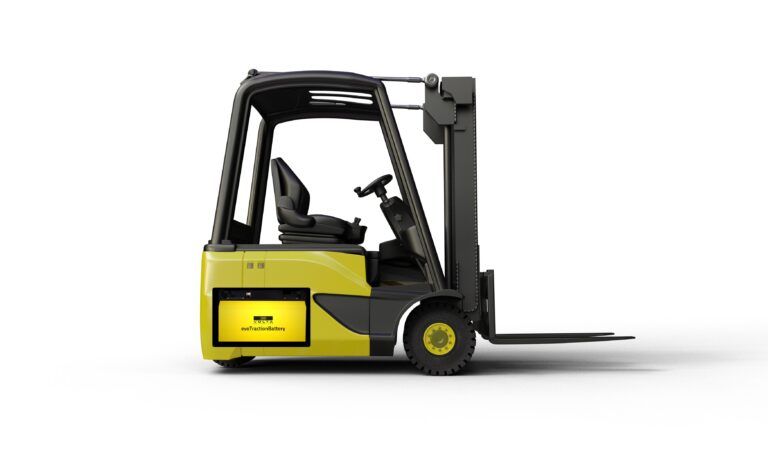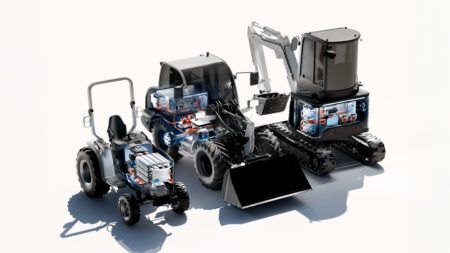A cost-cutting traction battery for industrial vehicles is being launched by Swiss battery system manufacturer ecovolta. Ideal for use in forklifts and pallet jacks, the new evoTractionBattery can replace lead-acid batteries thanks to a standardised lithium-ion solution, cutting the costs per charge cycle by up to 50 percent.
Each evoTractionBattery can be monitored individually via the cloud, which makes it easy to check battery data and manage charging online. To smooth the battery’s introduction, ecovolta is offering support to companies in integrating the new solution into their existing logistics systems.
The higher usable capacity of ecovolta’s evoTractionBattery and the significantly longer service life of its Li-ion technology offer major benefits in comparison to lead-acid batteries. Traditional lead-acid batteries can only be discharged to 50 percent of their capacity at most, whereas 90 percent of the capacity of ecovolta’s lithium-ion batteries can be used. Moreover, the new generation of batteries can be charged and discharged about 3,000 times, compared to only around 1,200 times for lead-acid batteries. As an example, with capacity of around 10 kWh the new battery can reduce costs by up to 50% per charge and discharge cycle. The charging time and weight will also be scaled back by over 80 percent.
“Until now lithium-ion technology hadn’t caught on in logistics since the increased initial capital costs put a cap on the economic viability in comparison to lead-acid batteries,” ays Paul Hauser, CTO of ecovolta. “The evoTractionBattery is changing that, enabling a 10-kWh lead-acid battery to be quickly and easily replaced by a 5-kWh lithium-ion solution at a low cost.”
The evoTractionBattery’s specifications also make it much more user-friendly. Unlike with lead-acid batteries, boosting charges do not have a negative effect on the service life of this lithium-ion battery. Combined with quicker charging and a greater depth of discharge, this means that operators of industrial vehicles are no longer limited by restrictive charging regulations or the need to change out batteries. Lithium-ion batteries also do not require the maintenance that lead-acid batteries do.





